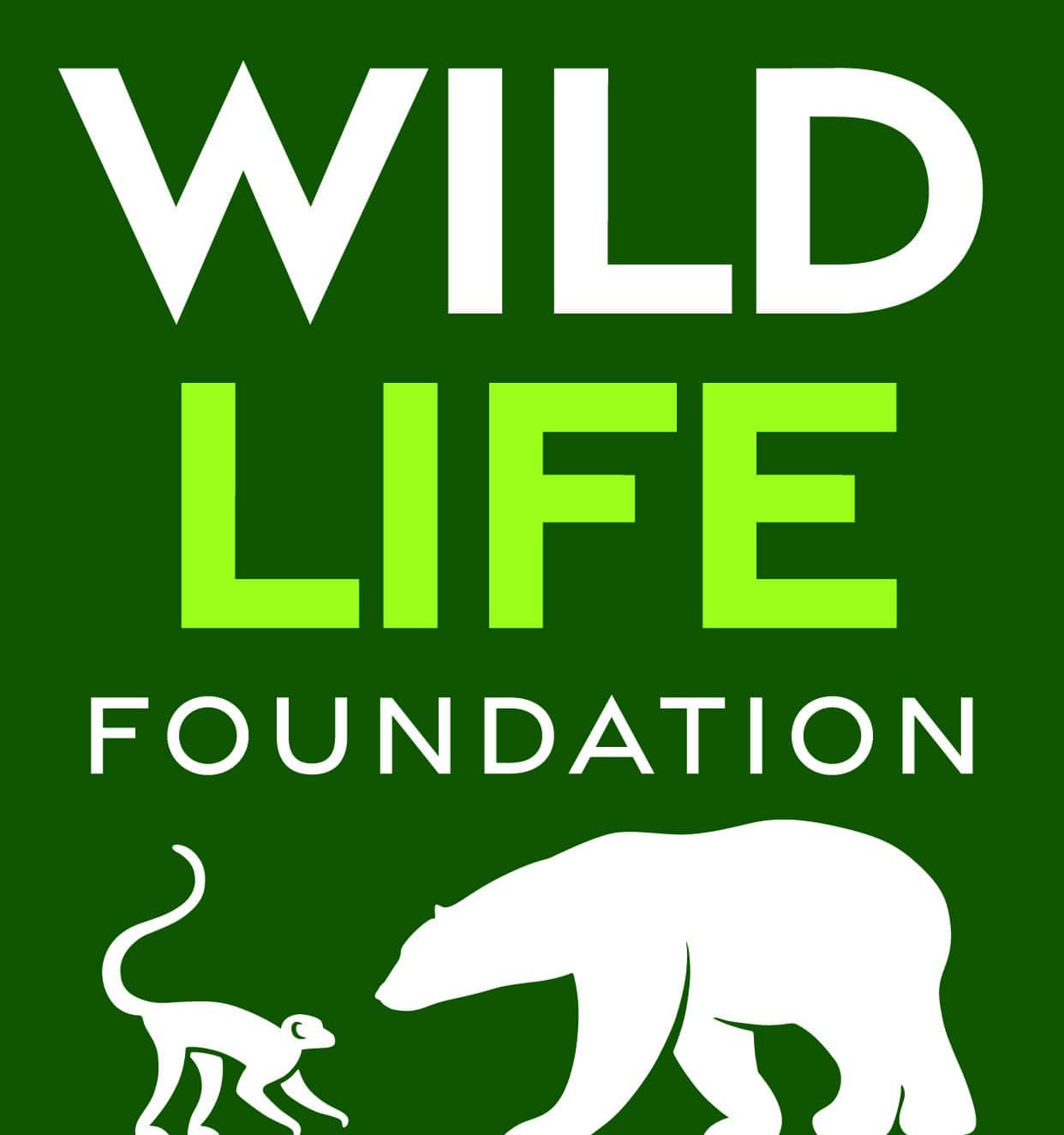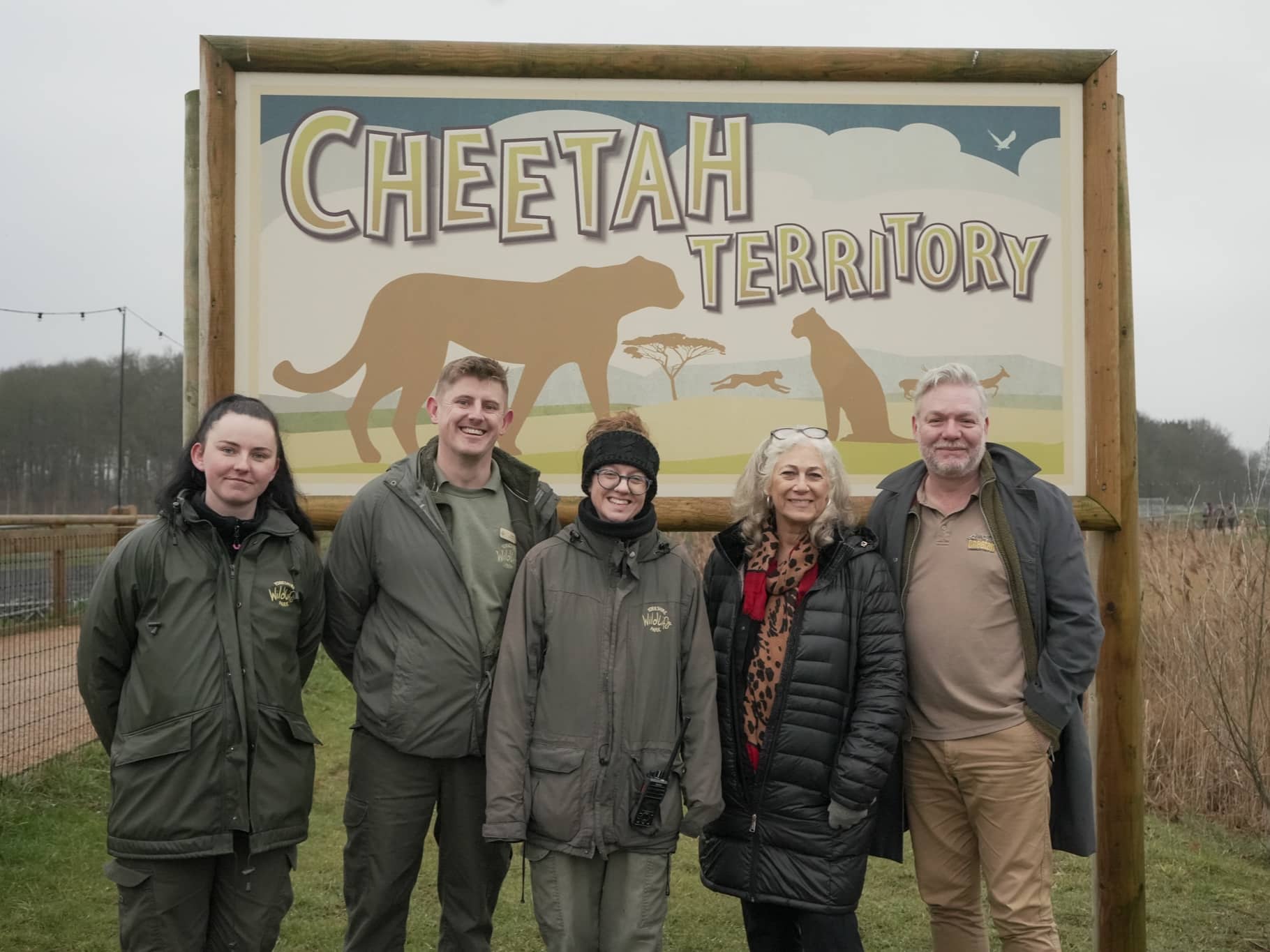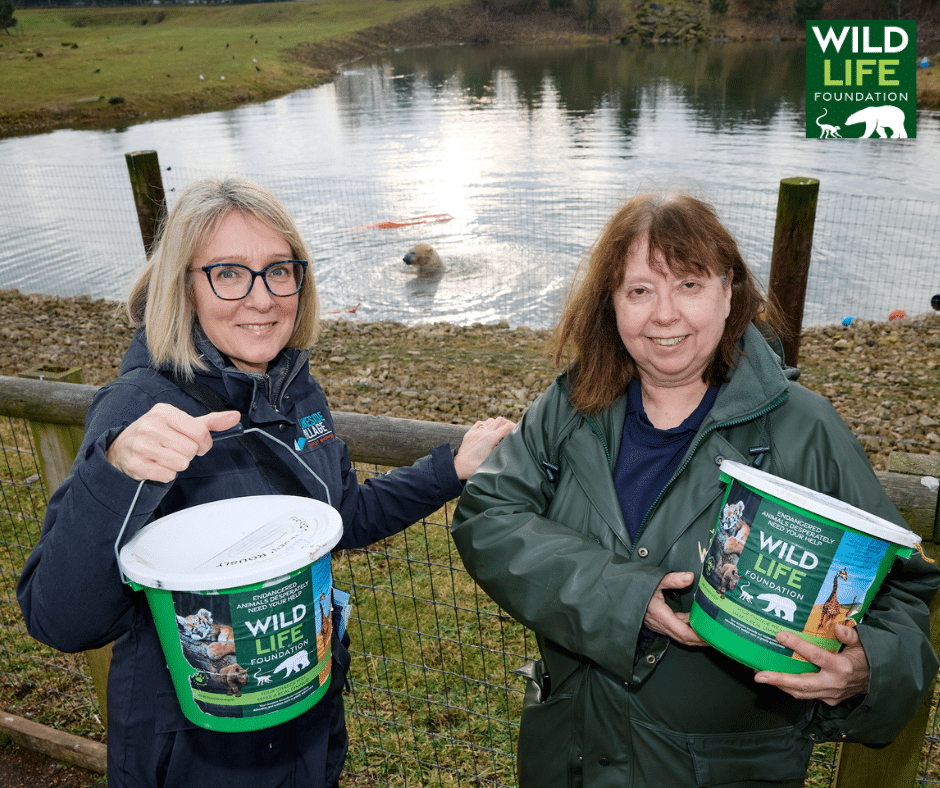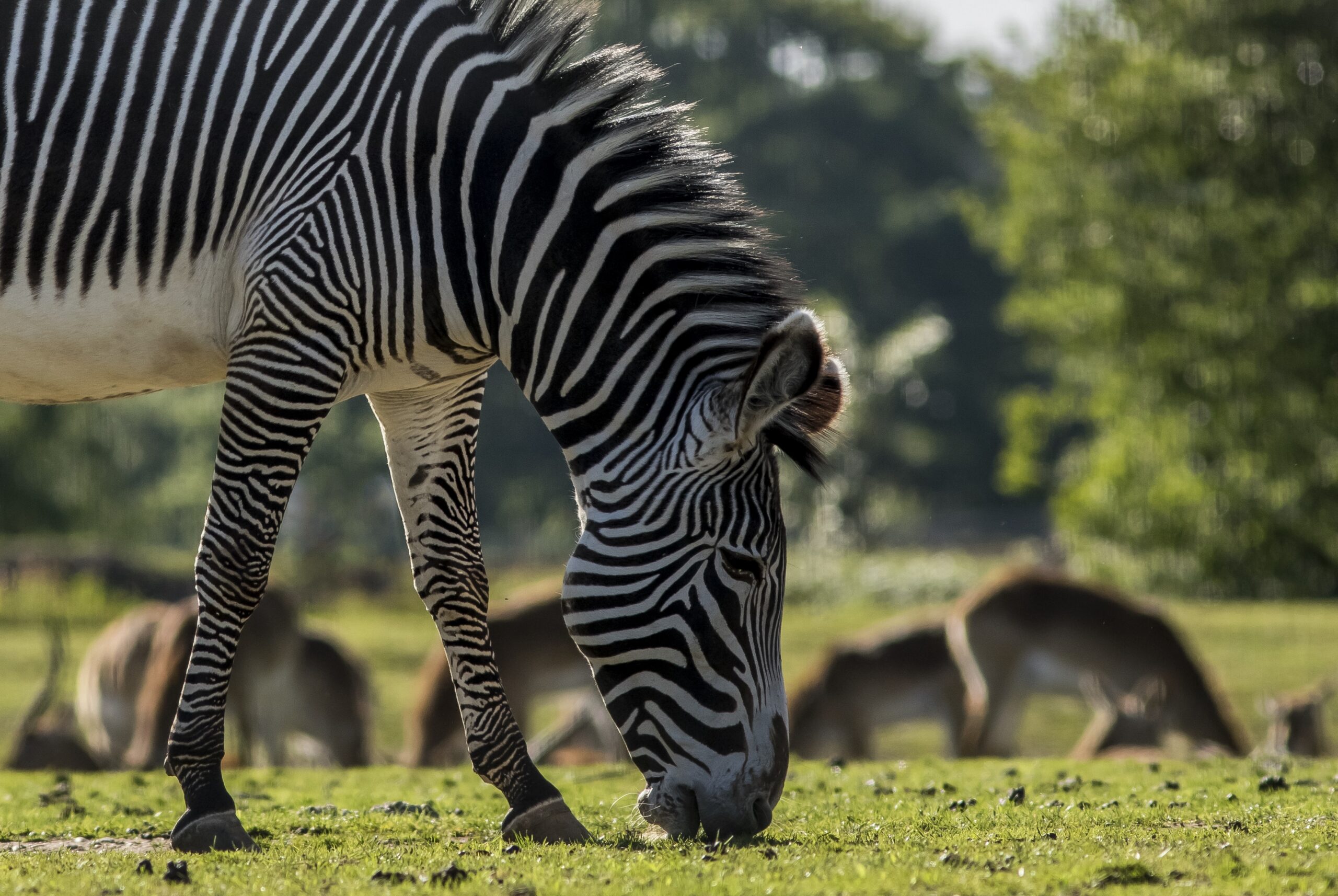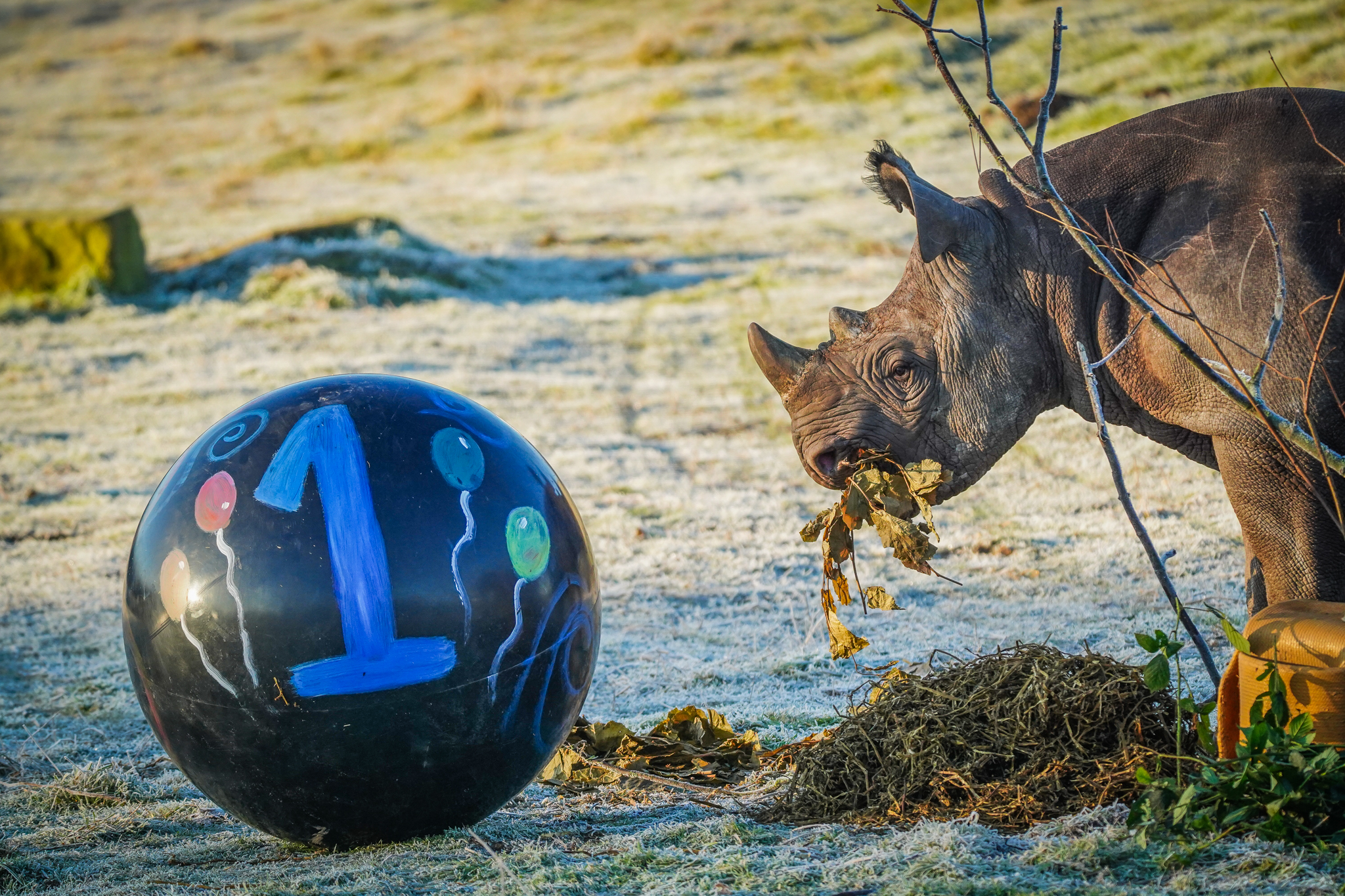A precision-planned global mission has delivered four endangered brown bears to a new home at the award-winning Yorkshire Wildlife Park.
The detailed operation was constructed over the last two months to create a safe and efficient journey over 5,400 miles from Japan to the UK.
The four bears, who travelled with one of YWP’s Animal Managers Simon Marsh and vet Alan Tevendale were transported in temperature-controlled conditions on the cross-continent transfer. They are now settling into their house after the long journey and will be gradually introduced to their extensive reserve at the Park.
Riku, Kai, Hanako and Amu were previously housed as part of an exhibit in outdated cages at the Ainu Cultural Museum on Hokkaido, the northernmost of Japan’s islands and urgently needed new facilities. Unfortunately, there was no capacity in Japanese zoos to take them, so YWP stepped in.
YWP and local experts spent nearly seven hours moving the four bears from the bleak cramped cages into specially constructed transport crates ready for their journey.
YWP Animal Manager Debbie Porter said: “The loading went like clockwork.”
The team, including an English and two Japanese vets, started the loading process at 4.30am and tempted the bears with food to move out of their original cages.
Debbie added:
“The 27-year-old female Hanako was very playful when we were loading her – at one point she tried to grab a hose pipe, she was very curious about what was going on. She is very sassy and extremely bright. She does like people so it should be quite fun when we get her settled at home.
“The bears were then taken to the airport in an air-conditioned lorry provided by DHL Japan.
“Once we had finished it It was unbelievable, I actually took a photo of the empty cages because you think for 27 years they have been in that tiny caging.”
“It was a very emotional day. Everybody was really pleased to take part in something so big. It had a really lovely feel to it.”
After being taken to the local airport they were flown on two flights to Tokyo and then overnight on Thursday into London’s Heathrow Airport. Safe in the UK, the four bears were carefully unloaded from the plane at 7am before being checked over ready for the final road leg of their trip to Doncaster.
They arrived at the Park at 12.30 pm to the delight of the staff who were anxiously awaiting their arrival. The crates were carefully unloaded and set against the house that was at the centre of their new home in the Rehabilitation reserve at the Park. One by one the slides were lifted and the bears took their first steps into their new home. Hanako was the first to leave her crate – pawing at the floor with impatience as the crate was locked into position, it was almost as if she knew she was home. She was quickly out, dived straight into her food, splashed in her water trough and triumphantly rolled in the deep straw bed before throwing the straw around. Who would have thought that she had been travelling for the best part of 2 days. The two younger males were next – both confidently coming out into their new home, and when Kai joined Riku in adjacent parts of the house, divided by mesh as they had been in Japan, Riku chuffed excited noises to Kai as they were reunited. The oldest bear Amu was left quietly for several hours to make his own mind up about coming out of his crate as he was the most reluctant.
The bears will spend a few quiet days in their house, not knowing of the expansive reserve that lies beyond it. They will be slowly acclimatised to going outside into the smaller enclosed area beyond the house before being allowed to venture into the main reserve. It is a huge change for them.
The Yorkshire Wildlife Park was chosen as their new home because of its experience in conservation of at-risk species and rehoming animals in need.
“The Museum does not have the experience or resources to look after the bears now, and wished to find them a new home, so animal welfare organisations around the world teamed up to find a solution,” said John Minion, CEO of the park at Branton, near Doncaster.
“We are fortunate we have the space, animal management skills and experience to rehome these bears that will require specialist care and it is great to welcome them to Yorkshire. We are grateful to the Ainu Museum for releasing the bears to us where we will be able to give them a secure future.”
These four bears will acclimatise in a special rehabilitation carnivore reserve that has two animal houses with smaller reserves and two large reserves in just under 4 acres.
The Park had a great response to a DIY SOS call to companies and tradespeople to help kit the reserve out with rocks, trees, platforms and other environmental features. The volunteers were busy the day before the bears arrived working on the reserve while the bears started their long journey to the UK.
The Ussuri Brown Bear is on the IUCN Red List of Threatened Species due to their vulnerability to habitat loss, illegal hunting for body parts and skins. There are estimated to be around 10,000 in Japan. The Ussuri Brown Bears are also known as the Black Grizzly, can weigh up to 550Kg and live up to 35 years.
The WildLife Foundation has been supporting animal welfare projects in Asia including bear welfare workshops in Japan and has been working with agencies in Japan and the UK charity Wild Welfare, a global organisation committed to improving welfare standards in captive wild animal facilities, to secure the transfer. The Ussuri bears that have come to YWP are too old to make any contribution to a breeding programme, but will have a valuable role as Ambassadors and to raise awareness for the work of the Foundation for bear welfare and conservation around the world.
“The Ainu Museum bears came to our attention a few years ago and we’ve been working closely with them, Japanese animal welfare NGOs and zoo experts to try to find a more suitable home for them,” said Georgina Groves, Wild Welfare’s project director.
“It’s great that these four bears have a new home at Yorkshire Wildlife Park. It has a great track record and we know they will provide the bears with a home where they can receive the rehabilitation, enrichment and life-long care they need.”
“The transport of live animals requires extensive planning and collaboration between various parties,” said Paul Chinery, Vice President Airfreight UK, DHL Global Forwarding. “We at DHL Global Forwarding are proud to have the chance to support the important work of institutions like Yorkshire Wildlife Park with our wide range of competencies, from rapid multimodal freight to customs clearance of sensitive cargo. “Thanks to our extensive expertise of planning and executing challenging transports we could ensure a smooth transition of the four bears to their new sanctuary.”
The Park and the YWP Foundation support conservation and welfare projects around the world from the critically endangered Amur leopard in Russia, the black rhino in East Africa to the lemurs of Madagascar.
Yorkshire Wildlife Park opened in 2009, and its visitors get up close to some of the world’s most endangered and beautiful animals, including Tigers, African lions, and the country’s only Polar Bears, in a walkthrough safari adventure.
Video courtesy of BBC Breakfast
